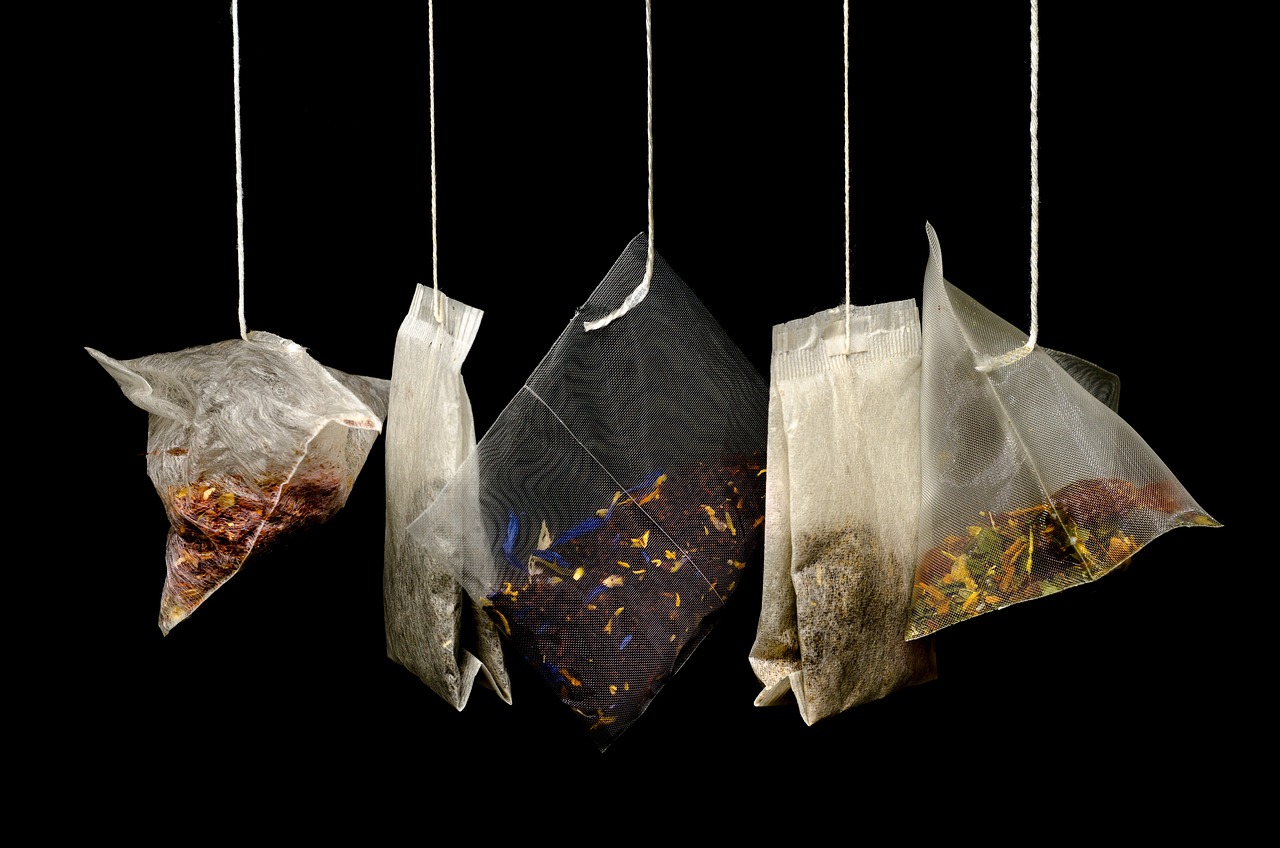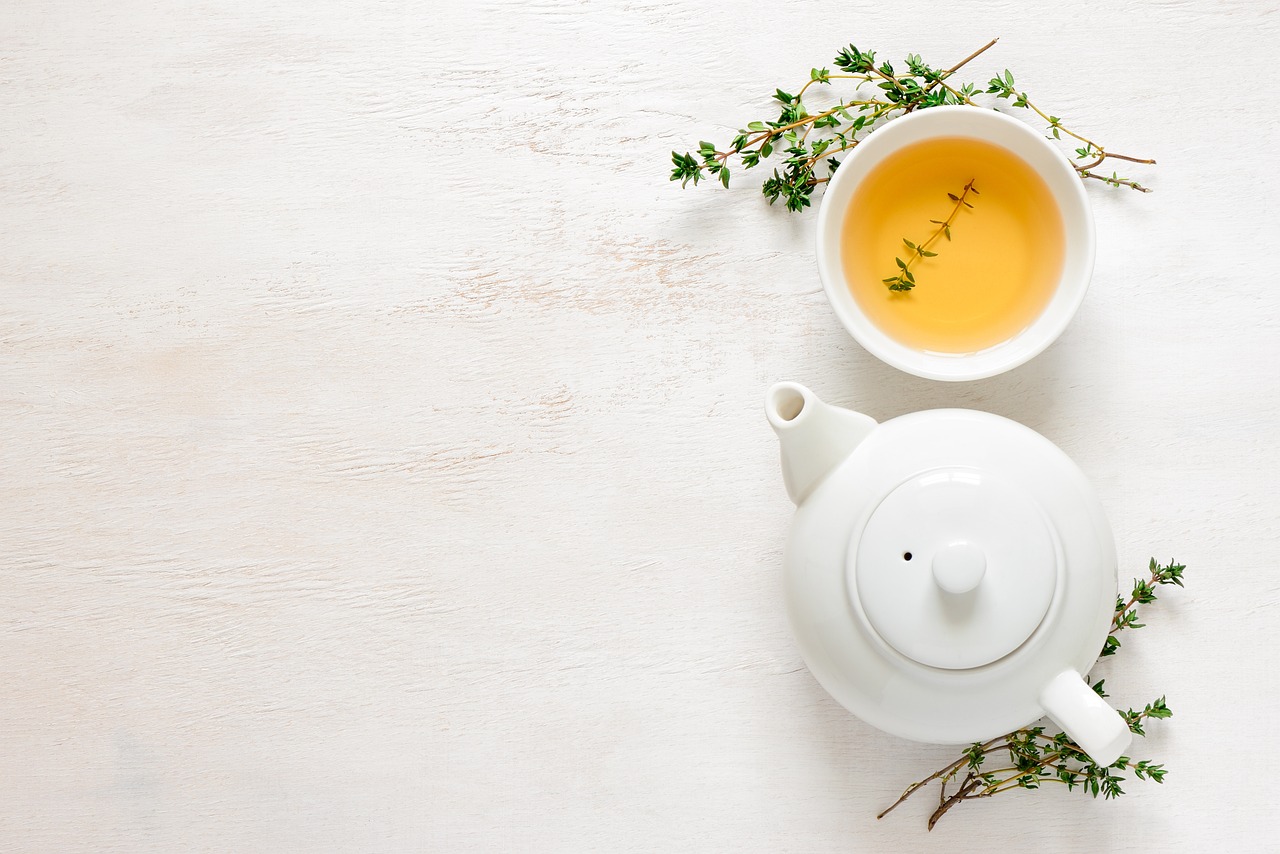Green Tea Vs. Black Tea: Which Is Better For Weight Loss?
Are you looking to shed those extra pounds but don’t know where to start? Look no further, because we have the answer for you! In this article, we will be comparing two popular beverages – green tea and black tea, to determine which is better for weight loss. Get ready to discover the benefits of both of these teas and find out which one will help you on your weight loss journey.

Nutritional Comparison
Calorie Content
When it comes to weight loss, one of the first factors to consider is the calorie content of the beverages you consume. Both green tea and black tea are low in calories, making them great options for those looking to shed pounds. On average, an 8-ounce cup of green tea contains around 2 calories, while the same size of black tea contains about 5 calories. This minimal calorie content allows you to enjoy these teas guilt-free while still staying within your daily calorie limits.
Caffeine Content
Caffeine can play a role in weight loss by boosting metabolism and increasing fat oxidation. If you’re looking for a tea with higher caffeine content, black tea may be the better choice. An 8-ounce cup of black tea typically contains around 47 milligrams of caffeine, compared to about 28 milligrams in the same size of green tea. However, it’s worth noting that individual caffeine sensitivity can vary, so it’s important to listen to your body and adjust your intake accordingly.
Antioxidant Content
Both green tea and black tea are rich in antioxidants, which can benefit overall health and potentially aid in weight loss. Green tea is particularly known for its high concentration of catechins, a type of antioxidant that has been shown to have a positive impact on metabolism and fat oxidation. Black tea, on the other hand, contains theaflavins, another type of antioxidant that has been linked to improved cardiovascular health. While both teas offer antioxidant benefits, green tea may have a slight edge in terms of weight loss potential due to its higher catechin content.
Impact on Metabolism
Green Tea’s Effect on Metabolism
Green tea has long been touted for its potential to boost metabolism, thanks to its catechin content. Catechins are believed to help increase thermogenesis, which is the process by which the body burns calories to produce heat. Additionally, green tea has been shown to help prevent the breakdown of norepinephrine, a hormone that plays a role in fat burning. By promoting thermogenesis and preserving norepinephrine levels, green tea may help rev up your metabolism and aid in weight loss.
Black Tea’s Effect on Metabolism
While black tea may not have the same reputation for boosting metabolism as green tea, it still has potential benefits in this regard. The theaflavins found in black tea have been shown to have a positive impact on lipid metabolism, which is the process by which the body breaks down fats. Studies have suggested that black tea consumption may help regulate lipid metabolism and promote healthy blood lipid profiles. While more research is needed to fully understand black tea’s effect on metabolism, incorporating it into your weight loss plan may still offer potential benefits.

Effect on Fat Oxidation
Green Tea and Fat Oxidation
Fat oxidation refers to the process of breaking down stored fats for energy. Green tea has been shown to have the potential to increase fat oxidation, which can aid in weight loss. The catechins in green tea have been found to help stimulate the breakdown of fat cells and promote the use of fatty acids as a fuel source. Additionally, some studies have suggested that green tea may help target abdominal fat, which is often considered the most stubborn type of fat to lose. Including green tea in your weight loss efforts may help enhance fat oxidation and inch you closer to your goals.
Black Tea and Fat Oxidation
While green tea may take the spotlight when it comes to fat oxidation, black tea has also shown potential in this area. Research suggests that black tea consumption may help stimulate fat breakdown and increase the utilization of fatty acids. Black tea’s theaflavins have been found to promote lipolysis, the process of breaking down stored fats. Incorporating black tea into your weight loss routine, in addition to a balanced diet and regular exercise, may help enhance fat oxidation and contribute to your overall weight loss efforts.
Appetite Suppressant Properties
Green Tea as an Appetite Suppressant
Feeling satisfied and controlling hunger cravings are essential factors in weight loss success. Green tea has been studied for its potential appetite-suppressing properties. Research suggests that green tea may help regulate ghrelin, a hunger hormone that signals the brain when it’s time to eat. By helping to keep ghrelin levels in check, green tea may help reduce appetite and prevent overeating. Additionally, the catechins in green tea have been found to help increase feelings of fullness, further supporting its appetite-suppressing effects.
Black Tea as an Appetite Suppressant
While there is less research specifically focusing on black tea’s appetite-suppressing properties, it can still be a valuable addition to your weight loss journey. Black tea contains polyphenols, which have been shown to have potential appetite-regulating effects. Additionally, the theaflavins in black tea may help reduce the activity of an enzyme called alpha-amylase, which is involved in the digestion of carbohydrates. By inhibiting this enzyme, black tea may help slow down carbohydrate absorption and increase feelings of fullness, potentially aiding in weight loss efforts.

Performance in Clinical Studies
Studies on Green Tea and Weight Loss
Numerous clinical studies have investigated the potential weight loss benefits of green tea. One study published in The American Journal of Clinical Nutrition found that green tea extract had a significant impact on weight loss, particularly in reducing abdominal fat. Another study published in The International Journal of Obesity showed that green tea consumption led to a reduction in body weight and body mass index (BMI). These findings suggest that incorporating green tea into your weight loss plan may have a positive impact on your journey.
Studies on Black Tea and Weight Loss
While there may be fewer studies specifically focusing on black tea and weight loss, it doesn’t mean it should be overlooked. Research published in the European Journal of Clinical Nutrition found that black tea extract significantly reduced body weight and body fat in obese subjects. Another study published in Critical Reviews in Food Science and Nutrition highlighted black tea’s potential in improving lipid metabolism and preventing obesity-related diseases. These studies suggest that black tea may be a valuable addition to your weight loss strategy.
Recommended Intake
Recommended Intake of Green Tea
To reap the potential weight loss benefits of green tea, experts recommend consuming 2-3 cups per day. Each cup should contain around 200-300 milliliters (about 6-10 ounces) of green tea. It’s important to note that excessive consumption of green tea, especially in the form of supplements or concentrated extracts, can lead to adverse effects. Moderation is key when it comes to green tea intake, and it’s always best to consult with a healthcare professional if you have any concerns or underlying medical conditions.
Recommended Intake of Black Tea
For black tea, a similar recommendation applies. Consuming 2-3 cups of black tea per day, with each cup containing around 200-300 milliliters (about 6-10 ounces), is a common guideline. As with green tea, it’s important to listen to your body and make adjustments based on individual preferences and sensitivities. It’s also worth noting that excessive intake of black tea, particularly if consumed late in the day, may interfere with sleep due to its caffeine content.
Possible Side Effects
Side Effects of Green Tea
While green tea is generally safe for consumption, it’s important to be aware of potential side effects. The caffeine content in green tea can cause restlessness, anxiety, and difficulty sleeping in some individuals, especially if consumed in excess or close to bedtime. Additionally, green tea can interact with certain medications, so it’s crucial to consult with a healthcare professional if you’re taking any prescription drugs. Lastly, green tea may hinder iron absorption, so it’s advisable to avoid consuming it with iron-rich foods or supplements for optimal nutrient absorption.
Side Effects of Black Tea
Similar to green tea, black tea also has a caffeine content that can cause side effects such as restlessness and difficulty sleeping, especially when consumed in excess or close to bedtime. Additionally, black tea may interfere with the absorption of iron, so it’s important to ensure you’re getting enough iron from other dietary sources. Some individuals may also experience gastrointestinal issues, such as acidity or an upset stomach, due to the tannins present in black tea. Monitoring your body’s response and adjusting your intake accordingly can help minimize any potential side effects.
Availability and Varieties
Availability of Green Tea
Green tea is widely available in various forms, including loose leaf tea, tea bags, and pre-packaged ready-to-drink products. You can find green tea in most grocery stores, specialty tea shops, and online retailers. Additionally, green tea is available in different flavors and blends, such as jasmine green tea, mint green tea, and matcha green tea. This wide availability and variety make it easy to find a green tea that suits your taste preferences and allows for personalization in your weight loss journey.
Availability of Black Tea
Similar to green tea, black tea is readily accessible in different forms. It can be found in grocery stores, tea shops, and online platforms, providing a wide range of choices for consumers. Black tea is commonly sold as loose leaf tea or tea bags, allowing for convenient brewing. Additionally, there are various black tea blends and flavored options available, such as Earl Grey, English Breakfast, and Chai tea. With its widespread availability, black tea offers versatility and convenience for those seeking to incorporate it into their weight loss routine.
Varieties of Green Tea
Green tea offers a diverse range of varieties, each with its own unique flavor profile and characteristics. Some popular varieties include sencha, genmaicha, matcha, and gunpowder green tea. Sencha is one of the most common green teas in Japan, known for its refreshing and grassy taste. Genmaicha combines green tea with roasted rice, resulting in a nutty and slightly savory flavor. Matcha is a powdered green tea that is whisked into a frothy beverage, providing a vibrant and intense flavor. Gunpowder green tea gets its name from its tightly rolled leaves, offering a bold and slightly smoky taste. Exploring these different varieties allows you to find a green tea that aligns with your taste preferences.
Varieties of Black Tea
Similar to green tea, black tea comes in various varieties, each with its own distinct characteristics. Earl Grey, a black tea flavored with bergamot oil, is one of the most well-known and widely enjoyed black tea varieties. English Breakfast is another popular choice, known for its robust and full-bodied flavor, commonly consumed with milk and sugar. Assam tea, grown in the Assam region of India, boasts a malty and rich taste. Additionally, Darjeeling tea is highly regarded for its delicate and floral flavor profile. With these different varieties, black tea allows for versatility and customization in your weight loss journey.
Taste and Preferences
Taste Profile of Green Tea
Green tea has a bright and fresh taste, often described as slightly grassy or vegetal. Its flavor can range from mild and mellow to more intense and bold, depending on the specific variety and brewing technique. The taste of green tea tends to be less astringent than black tea, making it a popular choice for those who prefer a smoother and less bitter experience. If you find the taste of plain green tea less appealing, you can try adding a squeeze of lemon or a drizzle of honey to enhance the flavor and make it more enjoyable.
Taste Profile of Black Tea
Black tea has a rich, robust flavor profile that is often described as bold and malty. It can have a slightly bitter or astringent taste, especially if steeped for too long. However, black tea’s bolder flavor is also what makes it popular, as it can stand up to the addition of milk, sugar, or other flavorings. The taste of black tea can vary depending on the specific variety and origin, with some teas offering more nuanced and complex flavor profiles. Experimenting with different brewing methods and exploring various black tea blends allows you to find the taste that suits your preferences.
Personal Preferences
Ultimately, when it comes to choosing between green tea and black tea for weight loss, personal preferences play a significant role. Some individuals may prefer the fresh and mild taste of green tea, while others may gravitate towards the bold and robust flavor of black tea. It’s important to listen to your taste buds and select the tea that you enjoy the most, as this will make it easier to incorporate into your regular routine. Both green tea and black tea offer potential weight loss benefits, so finding the one that aligns with your taste preferences ensures a pleasant and sustainable weight loss journey.
Conclusion
When it comes to weight loss, both green tea and black tea have their own unique benefits. Green tea, with its higher catechin content, may have a slight edge in terms of potential effects on metabolism and fat oxidation. However, black tea still offers potential benefits due to its theaflavin content and its impact on lipid metabolism. Both teas also have appetite-suppressant properties and have shown promising results in clinical studies. When deciding on your tea of choice, consider your personal preferences, as enjoying the taste of the tea will make it easier to incorporate into your daily routine. Remember to consume tea in moderation and consult with a healthcare professional if you have any concerns. By incorporating either green tea or black tea into your weight loss plan while maintaining a balanced diet and regular exercise, you can optimize your chances of success on your weight loss journey.
Comments are closed, but trackbacks and pingbacks are open.